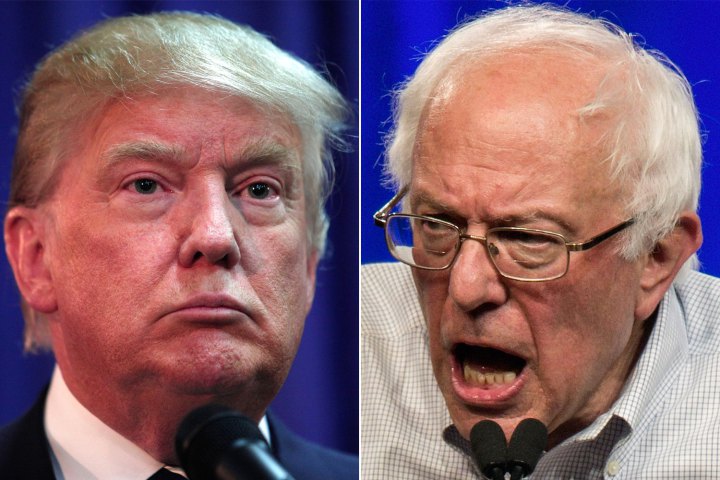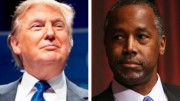With just hours before New Hampshire voters show up at the polls to declare their presidential preference, the question on everyone’s mind isn’t so much who is going to win. It’s by how much they do win.
Late polling by a slew of pollsters focused on the Granite State have Donald Trump winning the Republican primary and Bernie Sanders the Democratic. That much hasn’t changed since last year. But the margin in which the two win has been shrinking since both of them came in second place in Iowa, though Sanders contends it was a “virtual tie.” In the latest tracking poll by the University of Massachusetts, which has been constantly polling since the Iowa caucus, Trump’s once-commanding 38 percent lead dropped down to 34 percent while Marco Rubio, who surged to a close third place against the billionaire last Monday, has been able to overcome the gap.
But then Saturday’s debate happened. Since then, pundits, and polls, have shown Rubio starting to slide a little bit, falling into a tie with Ted Cruz, who won in Iowa. Meanwhile, CNN, which had Trump as high as 34 percent in January, shows his lead has slightly fallen to 31 percent with Rubio at 15. However, Cruz, John Kasich and Jeb Bush are all within the margin of error to overcome Rubio for second place.
On the Democratic side, Sanders’ once massive 61–30 lead over Hillary Clinton has now dwindled down to a 54–40 match, with the numbers still tightening. Part of that advantage came from the election becoming a two-horse race while another part is from the coverage of Clinton staving off a surging Sanders in the Hawkeye State. But, with Sander’s home state of Vermont right next door, the likelihood of Clinton overcoming the self-proclaimed democratic socialist remains quite low.
This doesn’t mean New Hampshire isn’t worth paying attention to or that the results of a poll the day before voting begins will play out. New Hampshire is the king of swing, with plenty of time for Rubio, Kasich, Cruz, Bush and Chris Christie to take the state. That’s according to data guru Nate Silver of FiveThirtyEight.com, who said the gap between polls and results can be wide.
“There can be huge differences between the poll sand the actual results, as we saw before with Hillary Clinton’s upset New Hampshire primary win in 2008 or (even more dramatically) Gary Hart’s in 184,” Silver said. “Hart took 37 percent of the state’s Democratic vote despite polling at just 21 percent.”
There is also the problem of the undecideds. As CNN reported after its latest poll came out, 30 percent of the Republican voters have not yet decided for whom they will cast ballots on Tuesday, 16 percent among the Democrats.
And that’s no small number for New Hampshire. In a state of just over one million registered voters, more than half will show up in contested primary elections. That’s a number not typically seen in other states, such as Iowa, and one that makes campaigning for every last vote necessary.
That could be problematic for Trump. While his chances of losing New Hampshire are low, with 30 percent undecided—and 35 percent of Iowa caucusgoers making up their minds at the end of the campaign, more breaking for Cruz and Rubio instead of Trump—the chances of the real estate mogul winning by a closer-than-expected margin remains high. If that happens, the media coverage—and support—for Trump could start to diminish going into the South Carolina primary on Feb. 20 and the Nevada caucus on Feb. 23, not to mention Super Tuesday on March 1, where 13 states will hold primaries or caucuses.
Related articles
Justin Shimko
Latest posts by Justin Shimko (see all)
- Rubio Ramps Up His Attack On Trump - February 26, 2016
- Trump’s Immigration Stance Different From His Practice - February 26, 2016
- Millionaire Congressman Collins Gives Trump First Elected Endorsement - February 24, 2016






